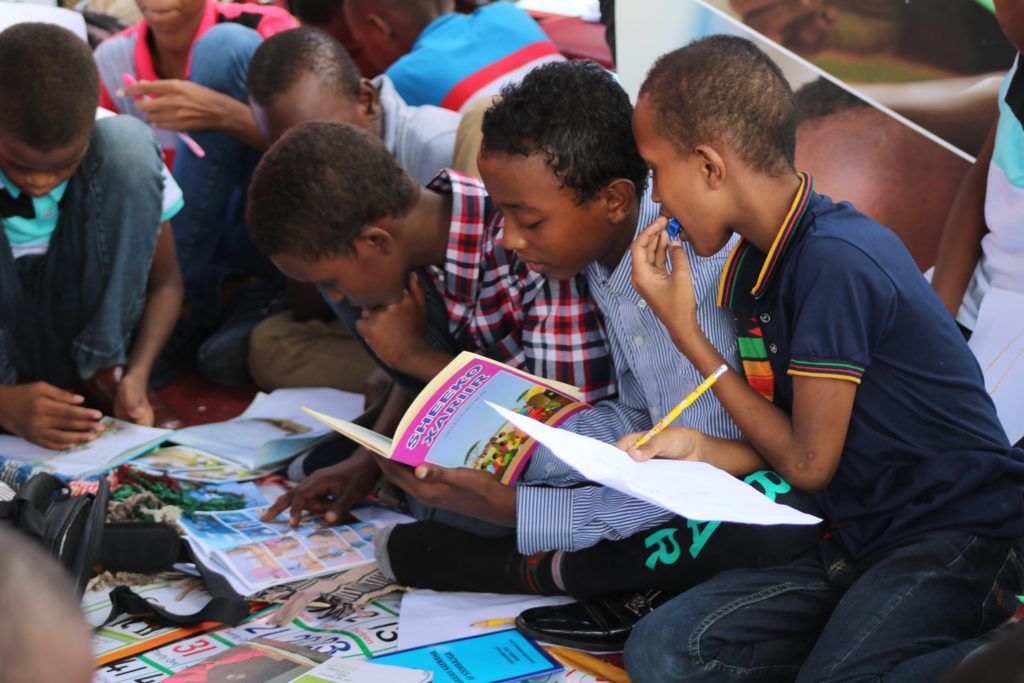Rallying Past Successes to Fuel Future Aspirations

Have you ever given much thought to how your past experiences affect your future success? I’ve been thinking a lot about how my multiple careers have built upon one another. It got me thinking, and I’d like to share some of this story with you. Here goes…
When I started teaching nearly 30 years ago, the field of education was quite different from what it is today. Standards-based teaching had not yet taken hold. While teachers may have had a set curriculum, we were free to choose how to teach the material. Alternatively, we may have been piloting an instructional model but had no pre-selected curricular framework. This left a lot of flexibility on the part of the teacher. While there was little consistency between classrooms, it did allow teachers to highlight their strengths and passions, all the while providing room for creativity.
For me, this was incredibly impactful. I knew that kids’ basic biological needs must be met before they’d be ready to learn anything new. If a child hadn’t eaten breakfast before coming to school, I gave them something to eat or sent them to the cafeteria. If they had a rough night, we talked about it, and I allowed them to rest if needed. This also meant building a sense of belonging. Establishing relationships between students and myself, students and other students, and students and staff/students outside of my classroom were a priority. We had regular class meetings so the children could express their concerns to one another. Consequently, students felt safe, included, and engaged not only in the classroom but throughout the school community.
Mine was not a traditional classroom. When you entered, you wouldn’t see rows of desks and kids raising their hands to answer questions. Kids were seated in groups or gathered about the room in pairs or trios, conversing about a problem in front of them or helping one another with a given task. It was a thriving, interactive setting. Rather than sitting (quietly) and getting (listening), the students discussed and learned collaboratively. Brain research and learning theory support the fact that these essential interpersonal, intellectual, emotional, and physical abilities develop through practice and repetition in an active environment.
I held high academic and behavioral expectations for all my students, regardless of their needs, intelligence, or circumstances. Starting wherever they were, I supported and scaffolded just enough to help stretch them to their next level of learning. They had voice and choice in their learning which piqued their interest and motivation. Their diverse strengths were highlighted, and they were encouraged to share these with each other. Students were not afraid to ask questions; in fact critical thinking was at the forefront of every lesson. Students experienced success multiple times everyday. While setting goals toward reaching their personal potential, they had the confidence to challenge themselves and take new risks. They rallied around one another and cheered each other on. Parents admitted that their kids had learned more than they thought possible. Lessons learned included substantial academic growth in multiple subjects in addition to personal and interpersonal concepts like perseverance, inclusivity, and service. All students, regardless of the family’s academic past, including students with special and gifted education needs and English learners, were empowered to learn.
I left teaching once my multiple sclerosis posed too great a strain on my energy to continue teaching the way I was accustomed. It was so difficult for me to leave, and I later told my classmates in my graduate social work program that I wanted to keep within the crossroads of education and social work. More specifically, I hoped to help bring social and emotional learning back into the classroom, as focus on the whole person had dwindled due to competing educational practices.
Following graduation, I was thrilled to get a job writing life, college, and career development curriculum for a nonprofit serving low-income students. It was the perfect venue for me to continue to teach others the value of modeling and teaching holistic wellbeing and the skills/mindsets required to get there. What’s more, Boys Hope Girls Hope has been serving kids through a positive youth development framework for decades. While researching motivation, grit, optimism/hope, etc., I learned about social scientists like Martin Seligman and eventually about the science of positive psychology. It gave the approach I had taken to working with young people and their families during my years teaching a name.
Little did I know, positive psychology had already become the focus of research used in the coaching field. I loved mentoring new teachers, supervising bachelors and masters social work students interning with Boys Hope Girls Hope, and training colleagues in new instructional material. These duties, combined with my teaching career, and a desire to embark in yet a different type of work, opened my mind to going into business as a coach myself. The Wholebeing Institute’s certification program taught me a myriad of coaching strategies as well as guiding me to establish my business.
Today, there is a lot of research available about positive psychology coaching. There’s also a growing amount of research about life coaching with youth but relatively little that combines the two. There are several spinoffs however, including positive youth development, positive parenting, positive discipline, positive education, and others, that I am well read on and use to bolster by toolkit. This love of learning, coupled with insights from past work experiences, invigorate me to dig in to coaching young people and therefore support my future professional aspirations.
So, send me your kids. Together we can guide them toward their potential…and their (and your) dreams!
How can you use your past successes to fuel your future aspirations? Take a few minutes to write about one instance and reflect on the power of this exercise. Comment below to let me know what you learned!
